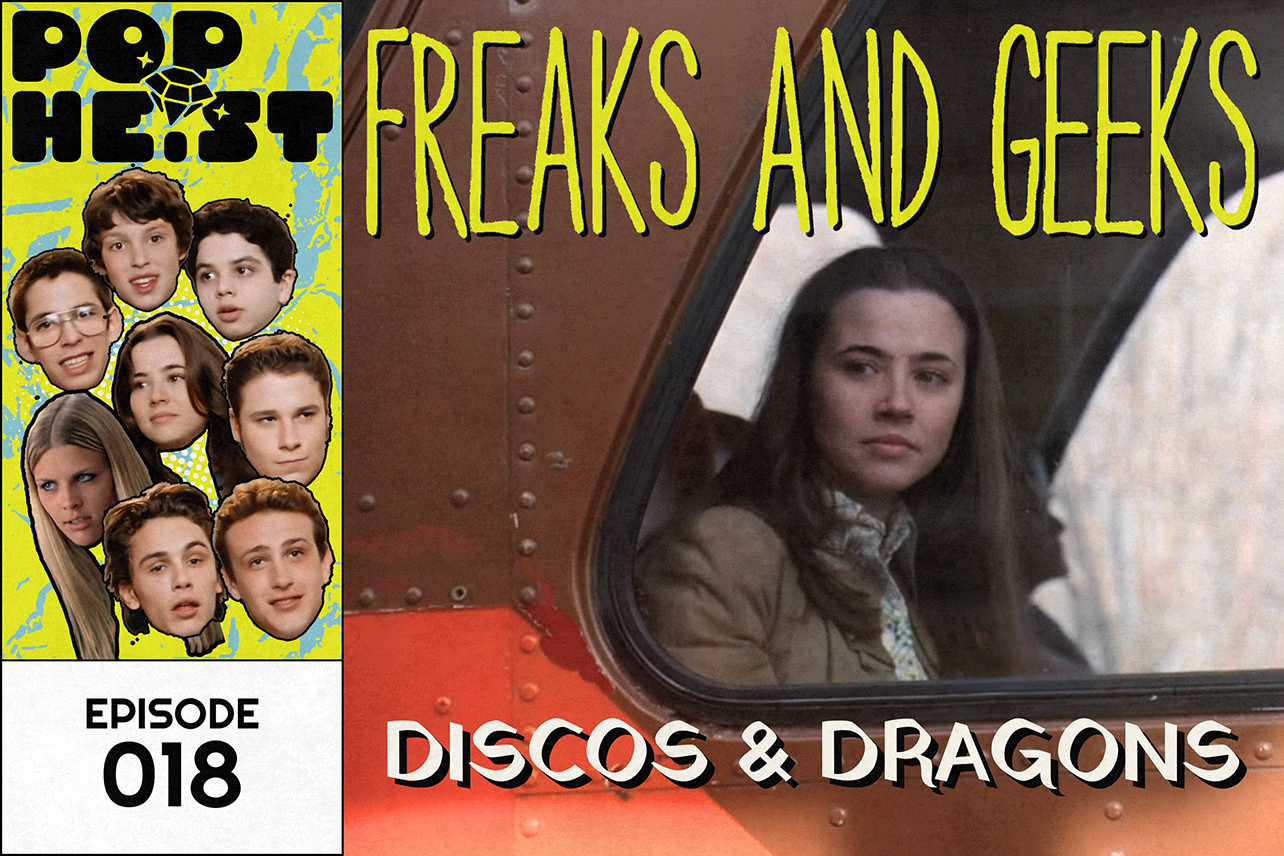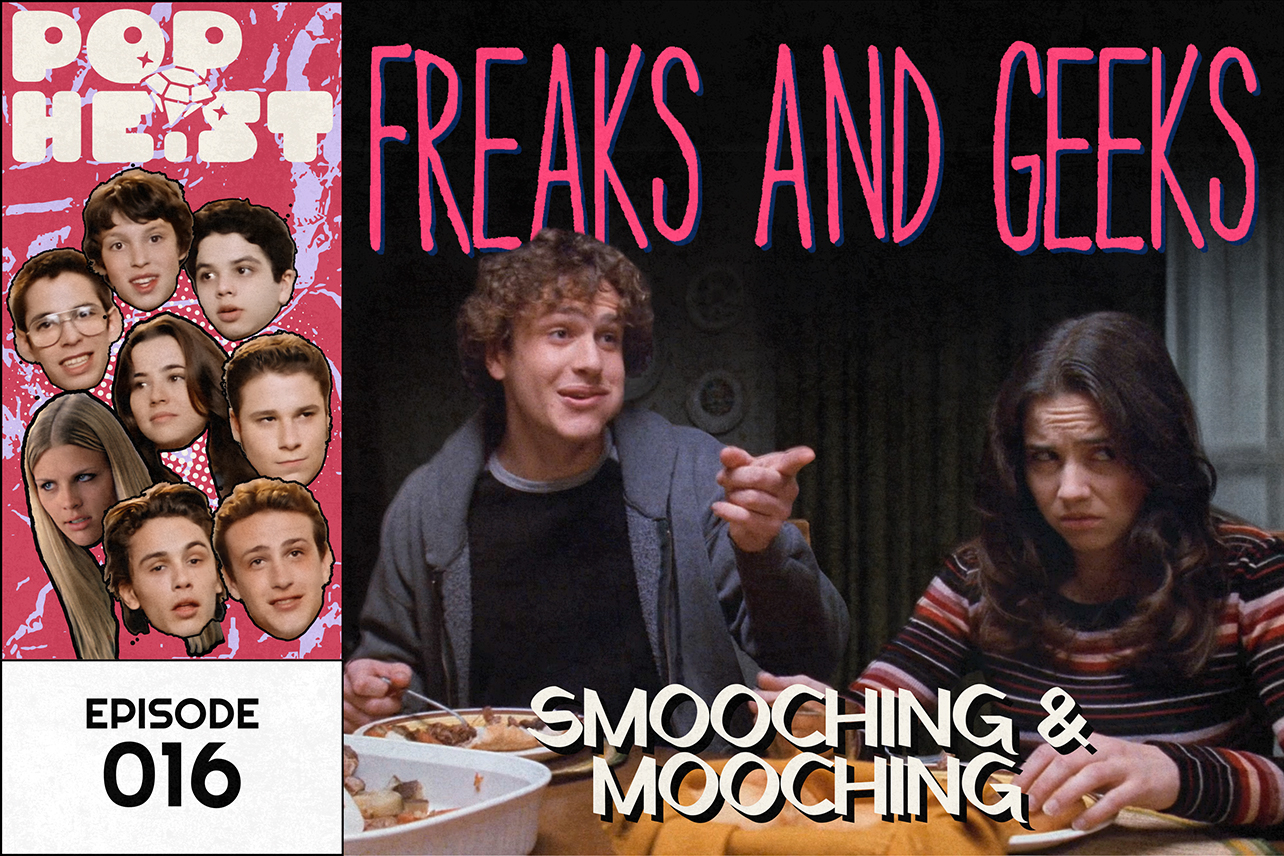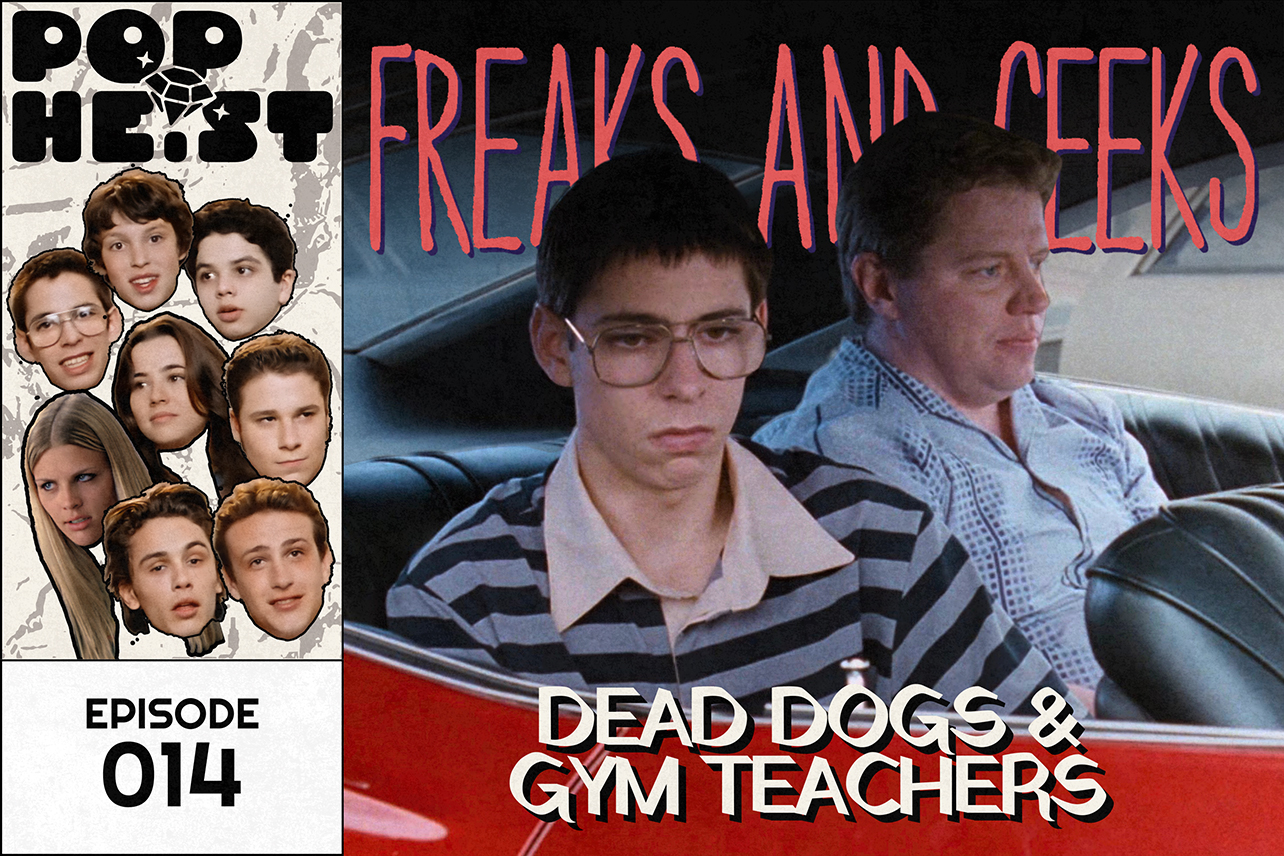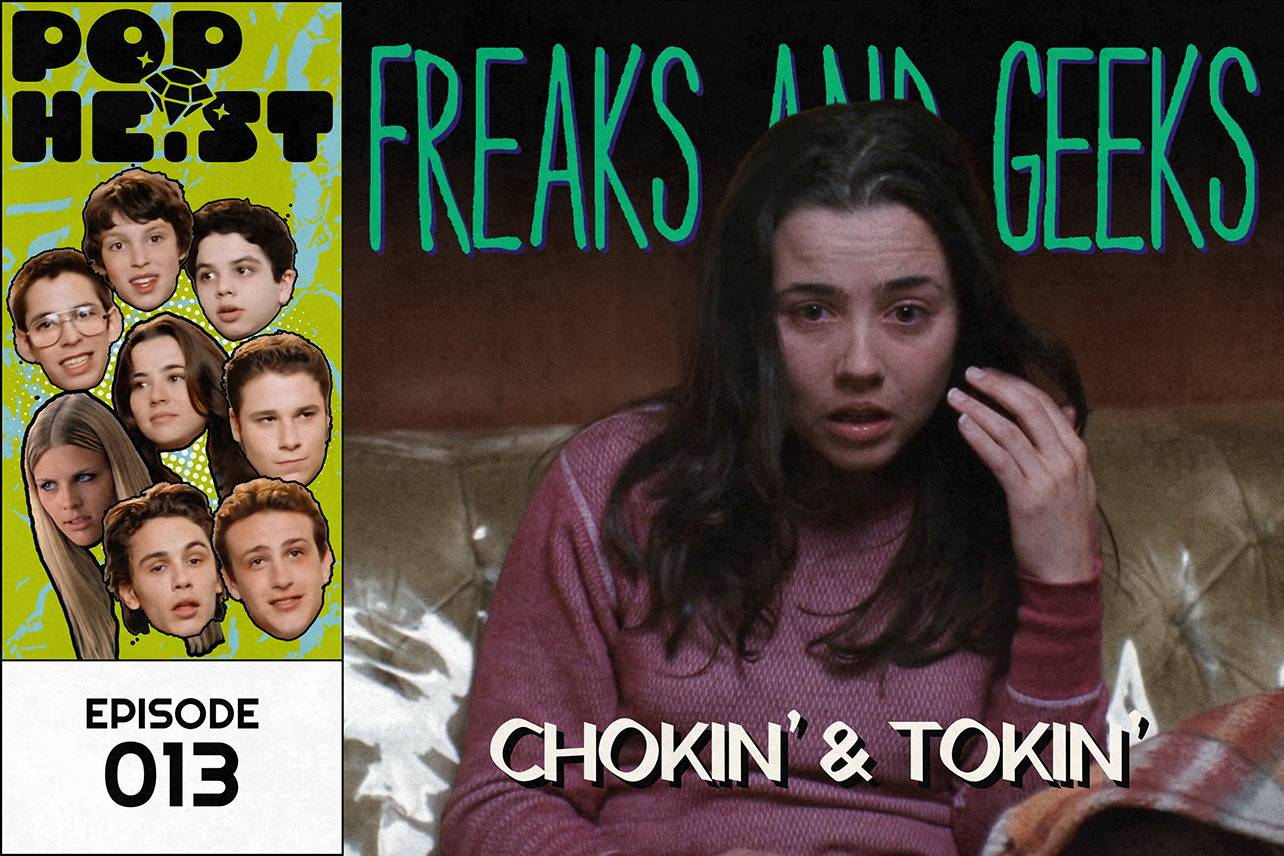Freaks and Geeks Episode 1
"Pilot"
Original Airdate: Sep. 25, 1999
Writer: Paul Feig
Director: Jake Kasdan
Cast: Linda Cardellini, John Francis Daley, James Franco, Samm Levine, Seth Rogen, Jason Segal, Martin Starr, Busy Philipps, Becky Ann Baker, Joe Flaherty
"Man. I hate high school."
Freaks & Geeks' opening scene couldn't be a better introduction to the show that's about to begin. Much has been written about it — the opening seconds, showing a football player and cheerleader expressing their love for each other, a scene right out of an ‘80s teen sports drama, before the camera cranes down under the bleachers, Van Halen's "Runnin' with the Devil" blaring as we meet the real kids we'll be following.
Nick, Daniel, and Ken, three burnouts — dubbed "freaks" due to their love of drugs, heavy metal, and general debauchery — discuss Daniel being kicked out of church for wearing a Molly Hatchet shirt. Meanwhile, nearby, Sam, Bill, and Neil — the geeks — quote Caddyshack to each other before being tormented by bully Alan. In between these two groups is Lindsay Weir, Sam's sister, a former mathlete — a geek herself, arguably — who has been changing, finding herself drawn away from the people and things she previously enjoyed, compelled by the prospect of fitting in with the freaks. Or perhaps she's always been a freak at heart, forced to be a mathlete, a good girl, a Christian.
But more likely, as the show will allude to as it goes along, neither really fits her; she is a victim of meaningless categorization that attempts to box people in, creating a hierarchy that you must respect, worship even, if you're going to survive high school. Nobody is one thing, and as much as Freaks and Geeks occasionally resembles the films of John Hughes (The Breakfast Club, especially), what Paul Feig and company do here is radical. The show is named after a binary, and a binary of two words that are damn near synonyms of each other — merely attempting to summarize which kind of outsider you are, the smart kind or the dumb kind. That title is merely a jumping-off point, a false dichotomy that this show revels in making hollow. Freaks will sometimes be geeks; geeks will sometimes be freaks; sometimes both will venture outside of these categories; often, even the popular kids are outsiders in their own ways.
This thesis — the complexity of individuals making any attempt at labeling them nonsensical — allowed Freaks & Geeks to go places other shows were afraid to. Over the course of these mere 18 episodes, the show will touch on abuse, classism, sexuality, gender diversity, the effects that toxic marriages have on children, and more. Every main character is the focus of at least a couple episodes. Minor characters are also more complex than they first seem. But at the center of all of it are siblings Lindsay and Sam Weir, two outcasts trying to find their place in the environment they exist in (William McKinley High School, in the fictional Detroit suburb of Chippewa, Michigan).
The Weirs' parents, Harold and Jean, are well-meaning but suffocating and hilariously square middle-class parents, concerned for both of their children — Sam's niche interests and lack of social skills as well as Lindsay's new attitude; an attitude surmised by her adopting her dad's old green army jacket as a new uniform. Near the end of this pilot, Lindsay tells Sam where her new outlook and behavior came from. She was the only person in the hospital room when their grandmother passed away; Lindsay asked if she saw a light, and the woman simply said, "There's nothing." Call this nihilism or existentialism. Either way, Lindsay is traumatized, unable to fathom how a woman as purely good as her grandma got nothing in the end, and is as a result being eaten by her own empathy. The world of Freaks & Geeks is, more than anything, deeply unfair. And unfairness is the theme of this first episode.
The geeks get bullied by Alan. Daniel gets kicked out of church despite them supposedly being all about forgiveness. Nick has to struggle to improve his grades — which, we later learn, is the only thing keeping his dad from forcing him to join the military — when he'd rather focus on drumming. Lindsay's attempts at stopping Eli, an autistic kid, from being bullied leads him to break his arm. Then there's Kim Kelly, Daniel's girlfriend and the most confrontational and abrasive of the freaks, who suddenly has her friend group infiltrated by Lindsay, who she views as a middle-class LARPer. And as much as I, on my initial viewing back in college, believed Kim to be overreacting, she's not wrong. Lindsay has the privilege to decide who she wants to be, while Kim never had a choice, abuse and poverty forcing her into the outsider status that Lindsay is now adorning like a costume. (The two will be best friends soon, hierarchy and labels unable to keep these kindred spirits separated once they're forced to see each other's humanity.)
Despite all of this unfairness, Freaks & Geeks isn't a show I associate with misery. I associate this show with first kisses, with enemies becoming friends, with discovering that the people you thought were outside of your orbit are still just people and through this realization connecting with them. (It also speaks to the show's dramatic and thematic strength that I haven't even mentioned that it's a comedy, but before the episode hits its halfway mark, Martin Starr has already proven he's a comedic master — his dry reading of "I really don't see that happening" makes me cackle every time).
The world is unfair, especially in high school, but there's so much joy to be found if you're open to seeing it. By the end of the pilot, the geeks have stood up to Alan, Sam dances with his popular crush Cindy Sanders, and Nick has given Lindsay her goal for the rest of the show: find her reason for being, her "gigantic drumkit." Does Lindsay ever find this sense of purpose? Who knows. Premature cancellation leaves a lot unsaid. We get 18 episodes. Somehow, this fantastic pilot may be the least great of those 18 (don't hold me to that). It's not enough, but it's the greatest television show of all time anyways, and I'm forever thankful that it's always here for me, to return to and get lost in. Strap in. We have a keg party next week.
Grade: A-
This recap was originally accessible to paid subscribers only, and future recaps in this series are available now for paid subscribers. If you haven't already, consider supporting worker-owned media by subscribing to Pop Heist. We are ad-free and operating outside the algorithm, so all dollars go directly to paying the staff members and writers who make articles like this one possible.






